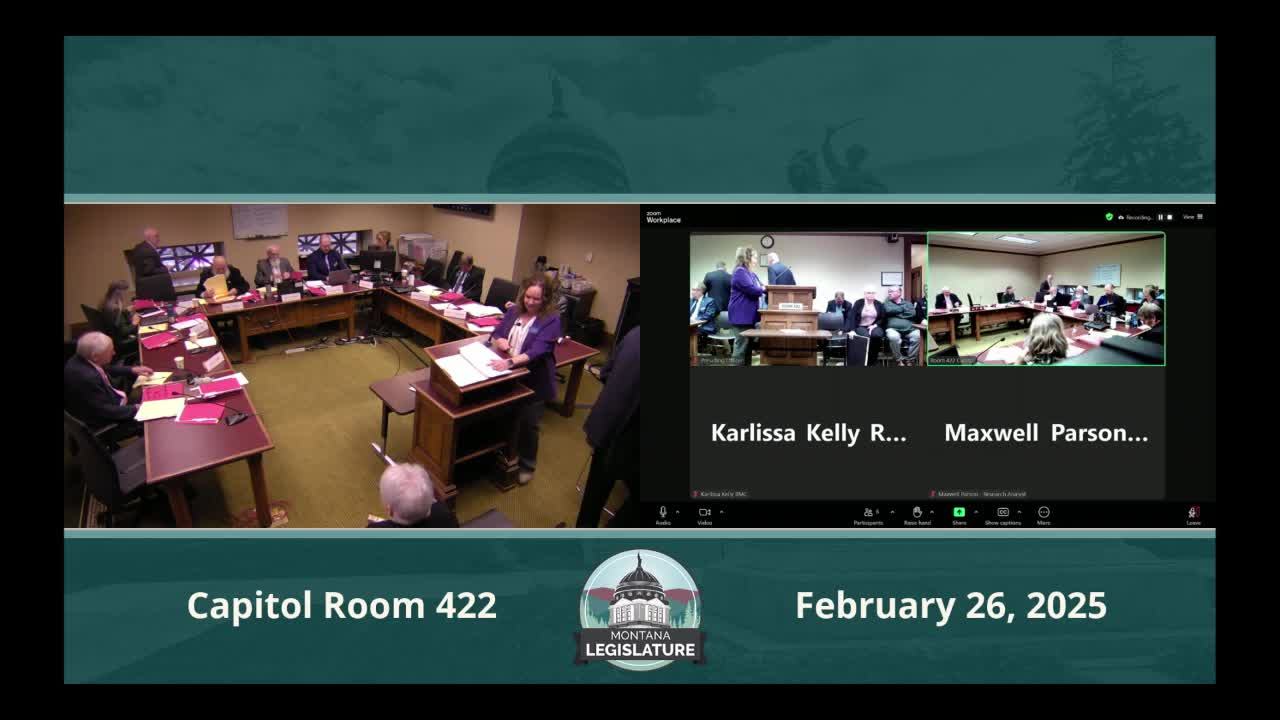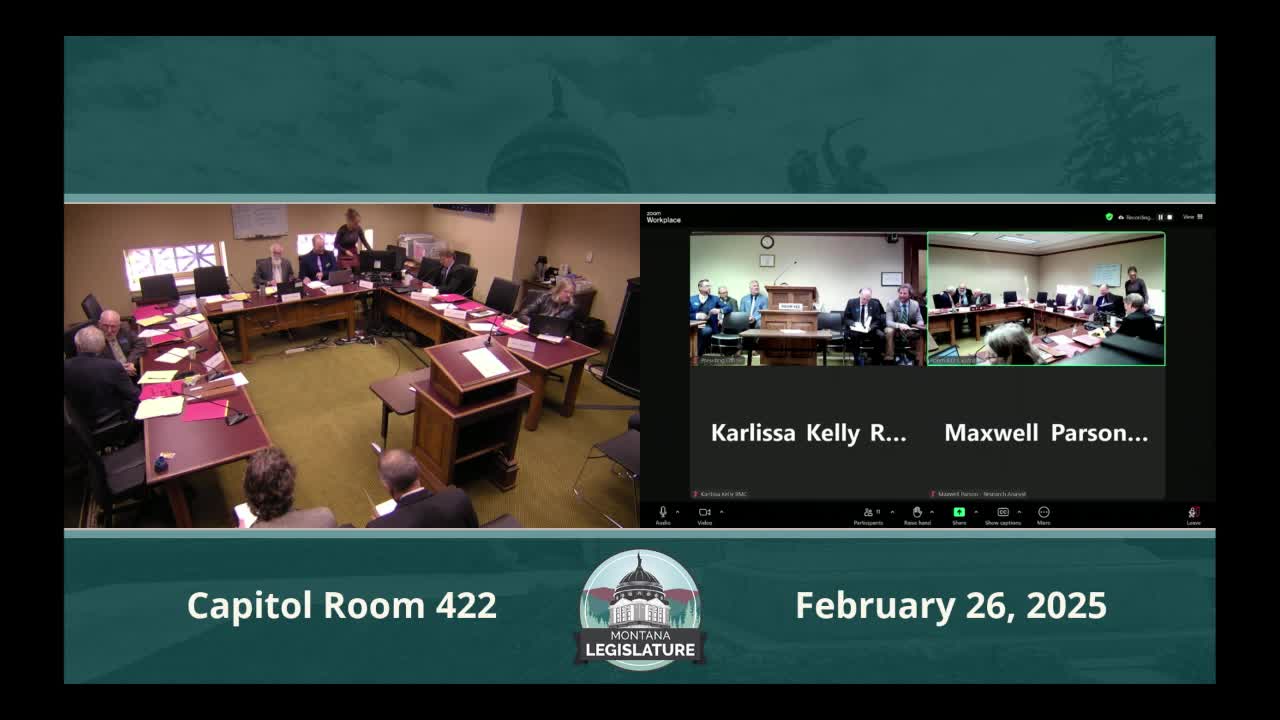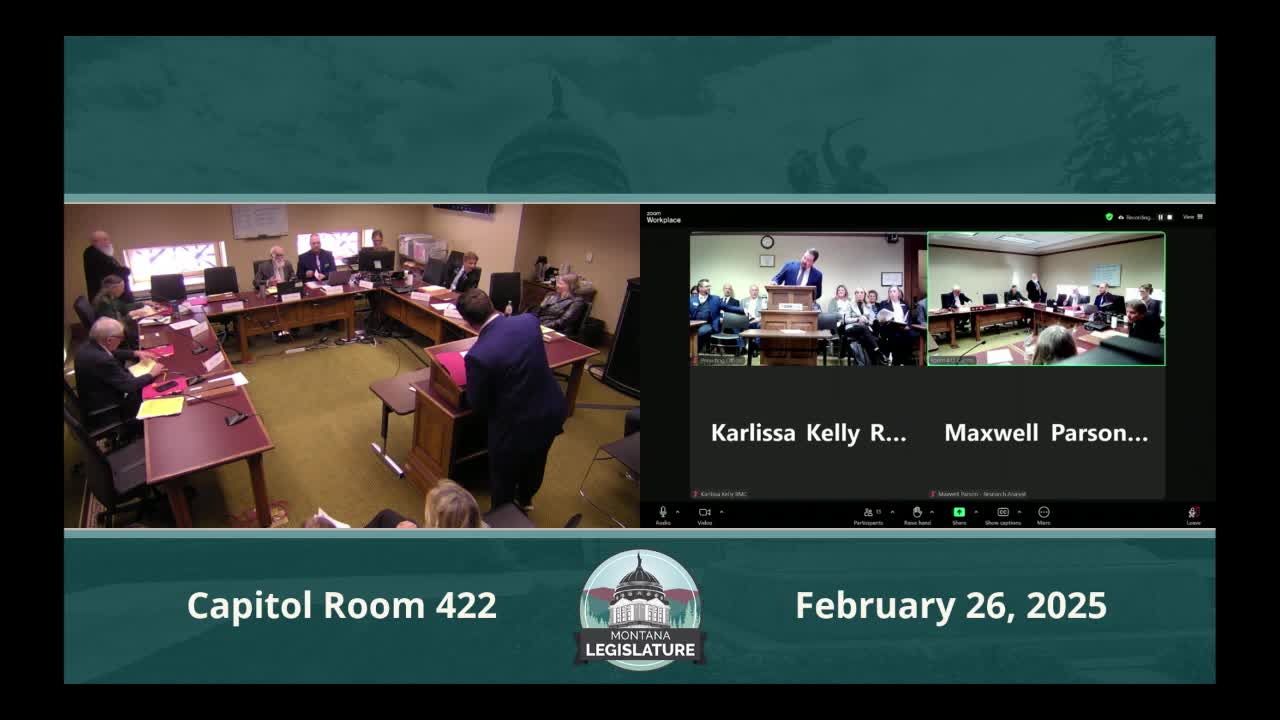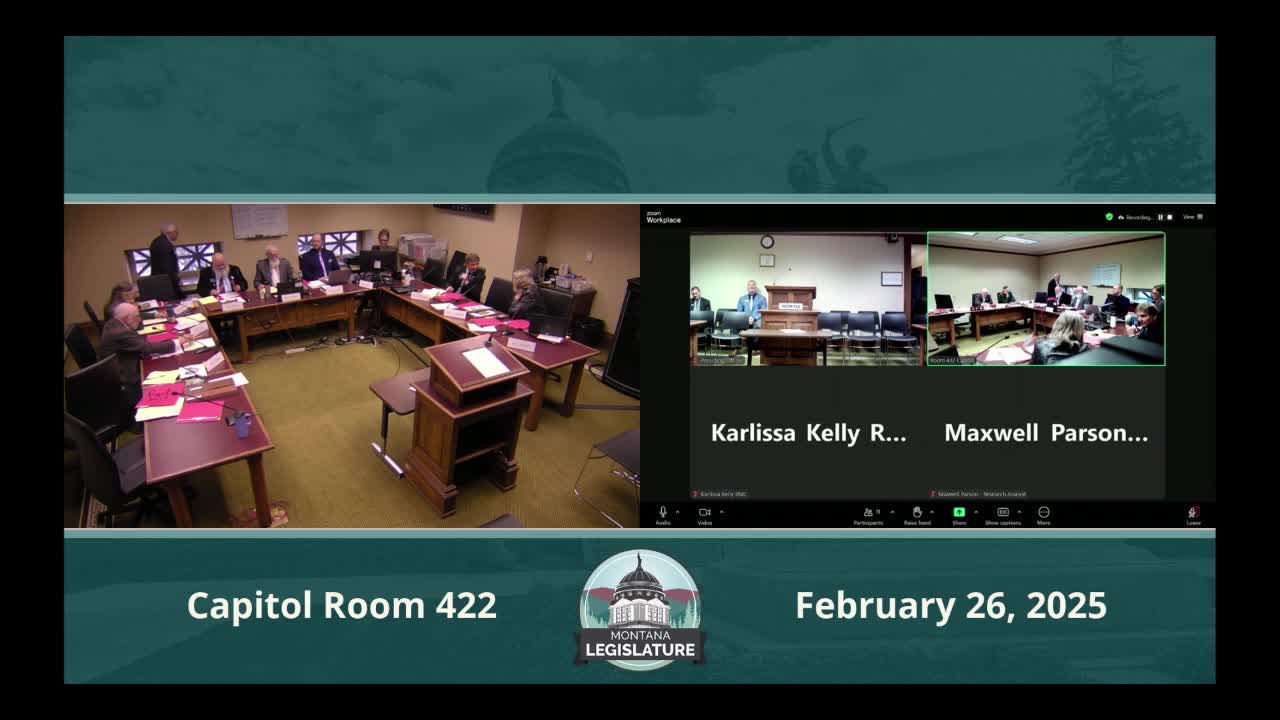Article not found
This article is no longer available. But don't worry—we've gathered other articles that discuss the same topic.

Family and safety groups push 'Chloe’s Law' hands‑free driving bill; committee adopts minor amendment and moves bill forward

Committee hears split testimony on e‑bike definitions and trail access in SB 387

Montana committee hears wide support and opposition for bill raising luxury vehicle fees to fund bridges, victims services and Highway Patrol

